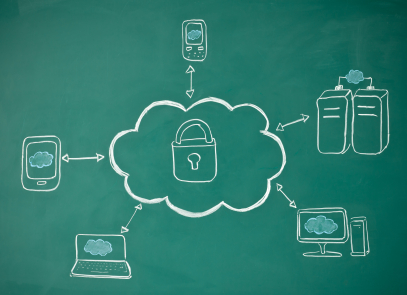No More Ransom saves the day
The story of Marion, a computer user from Germany whose files were encrypted by ransomware — and how she got them back without paying ransom.
Read MoreRSS Reader for Computer Security Articles
The story of Marion, a computer user from Germany whose files were encrypted by ransomware — and how she got them back without paying ransom.
Read More Classic and modern… often standing side by side. Many of the world’s greatest cities are incredible collections of architectures, some old and some new, coming together for a common purpose. Not unlike these cities, any great enterprise still has the legacy platforms on which it has built its foundation; AIX, Solaris, and Windows 2003 to name…
Classic and modern… often standing side by side. Many of the world’s greatest cities are incredible collections of architectures, some old and some new, coming together for a common purpose. Not unlike these cities, any great enterprise still has the legacy platforms on which it has built its foundation; AIX, Solaris, and Windows 2003 to name…

When Kjell Magne Bondevik, the former prime minister of Norway, was temporarily detained upon arriving at Dulles International Airport on Jan. 31, international controversy ensued.
The controversy was purely political, and while I do not support the executive order stopping people from seven countries from entering the U.S., Bondevik’s detention had nothing to do with that issue. Instead, he was detained for additional questioning under a 2015 law that requires people who visited any of the seven countries in question to obtain a visa prior to entering the U.S., even if they are from a country that does not normally require a visa for entrance to the U.S. The law was put in place in the aftermath of the Paris attacks. Whether or not the law is just is not relevant to this discussion.
To read this article in full or to leave a comment, please click here
According to the Annual Security Threat Report by Quick Heal, mobile ransomware has increased by 450% from Q1 to Q4 in 2016 while mobile banking Trojan has shown an increase of 110%. Read the complete report here. All these stats only echo the fact that Android phones are a hotbed…
The post 6 possible signs your Android phone may be infected with a virus appeared first on Quick Heal Technologies Security Blog | Latest computer security news, tips, and advice.
Read More
The U.S. House of Representatives on Monday approved a bill that would update the nation’s email surveillance laws so that federal investigators are required to obtain a court-ordered warrant for access to older stored emails. Under the current law, U.S. authorities can legally obtain stored emails older than 180 days using only a subpoena issued by a prosecutor or FBI agent without the approval of a judge.

If your TV is hooked up to the internet, it’s probably tracking you somehow. Here’s how to get a little bit of control back. The post How To Stop Your Smart TV From Spying on You appeared first on WIRED.
Read More | |
| 2016 was the year that reminded us how important prevention is, no matter what type of user you may be. Indeed ransomware dominated the threat landscape and was heavily distributed via phishing emails, compromised websites, or malicious ads. With such a threat that encrypts your valuable data, there is often times very little you can do… Categories: Tags: botnetsddosmalwarephishransomwareState of Malware |

Just because you’re using a Mac doesn’t mean you’re safe from hackers. That’s what two security researchers are warning, after finding a Mac-based malware that may be an attempt by Iranian hackers to target the U.S. defense industry.
The malware, called MacDownloader, was found on a website impersonating the U.S. aerospace company United Technologies, according to a report from Claudio Guarnieri and Collin Anderson, who are researching Iranian cyberespionage threats.
The fake site was previously used in a spear-phishing email attack to spread Windows malware and is believed to be maintained by Iranian hackers, the researchers claimed.
To read this article in full or to leave a comment, please click here